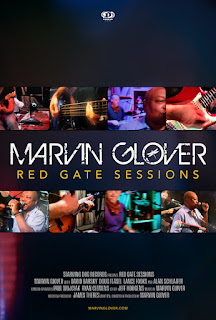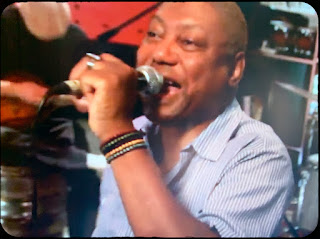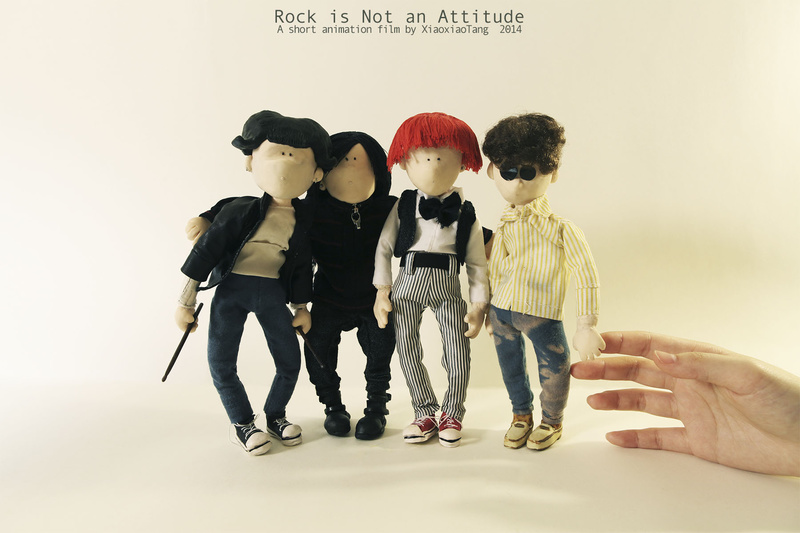"My name is Gordy De St. Jeor. I'm 19 years old, but I've been working in the film industry since I was 13 as an actor. Eventually, I decided I wanted to create films for myself, and I've been DP'ing and directing films and music videos ever since. I have a strong background in music, having been on tour 5 times shooting video content for bands like "The Driver Era", "Iron Maiden/The Raven Age", and "Jesse McCartney", while also being a musician myself. I have also shot music videos for artists like "Wolfgang Van Halen" and "Kat Von D." I have DP'd a few short films over the years, and directed a few small ones, but this film was a passion project of mine, and I'd like to call it my directorial debut."
GORDY: I would say having a basic understanding and passion for music in general has helped me more than anything. Being able to anticipate when moments are going to happen is crucial to getting the shot sometimes. Also being a lover of music and being able to put that passion into your work is absolutely crucial in my opinion.
ROFFEKE: What are some lessons you learned from creating this content for bands?
GORDY: I think above all I've learned that you need to not be afraid to get creative. Especially when you are on tour shooting the same show for an extended period of time, you need to be able to find ways to still make it interesting. This is different for every project, but you need to be willing to cross into the uncertain and take creative risks to keep the product interesting and exciting. You also want to always be prepared to capture the moment, even if you won't use most of the footage.
ROFFEKE: What are some similarities and/or differences between shooting such content for bands versus filming narrative content, like your awesome short film “The Thrill”?
GORDY: The processes of shooting with bands and shooting narrative film couldn't be more different in my opinion. The approaches are almost completely opposite, in one you have no control over what the subject is going to do, therefore you are trying to predict and capture anything that does happen, and then make some sort of story out of it later. The other is meticulously planned, and you know exactly what you are shooting when you are shooting it. The goal is to try and insert the same spontaneous energy into the narrative work, and give the audience a sense of uncertainty throughout the film, which is a very tough task. I would say for this film, knowing what it is like to shoot bands on stage with thousands of fans helped a lot in trying to recreate that energy in a completely fabricated environment.
ROFFEKE: For musicians wanting to get into filming or musicians wanting to collaborate with filmmakers, what advice would you give them?
GORDY: I think music and film are extremely compatible, and my advice would be to try to have fun and experiment with that compatibility. For me, it's really fun to try and see how different visuals react with different music. Music has the power to change the tone or message of a visual completely, and the same is true in the reverse. I would say trust your collaborators and don't be afraid to step out of the box and see how mixing these mediums can create new ways to express complex feelings and situations. Not to be unoriginal, but enjoy the process because for me, music and film are married and it's always extremely exciting to see what they can do together.
ROFFEKE: In your director’s statement, you say “I made this film to explore the struggles we go through as artists, and to question, whether or not that struggle is worth it for the thrill.” As a creative, I know for sure that the struggle is worth it. In your view, WHY is the struggle worth it? What makes it worth it?
GORDY: To be completely honest, I'm still not sure if it is worth it. I know that if I'm not expressing myself in a creative way I might go crazy, but I'm not fully convinced that sacrificing yourself as it seems Daniel does in The Thrill is really worth the benefits that come with it. I think it's important to address the fact that a lot of artists, struggling or not, are not mentally healthy and have problems that they are actively dealing with through their chosen medium. And while that process can be and is often therapeutic, I'm not convinced that it can solve all of your problems when you dig yourself that deep. What happens when you sacrifice yourself for something and it works? What about the moment after? What about when it doesn't work? What are we really doing to ourselves? Why are we doing this to ourselves? I don't mean to be dark, I do really think art is one of the most important parts of us and we wouldn't be human without it. The act of expressing yourself is one the best gifts we can share with the world, and it has the power to bring people together and understand who we are on an indescribable level. But I think it's important to look deeper and ask ourselves WHY we do what we do and always question our values, especially when you are betting everything on them.





































































































































































































